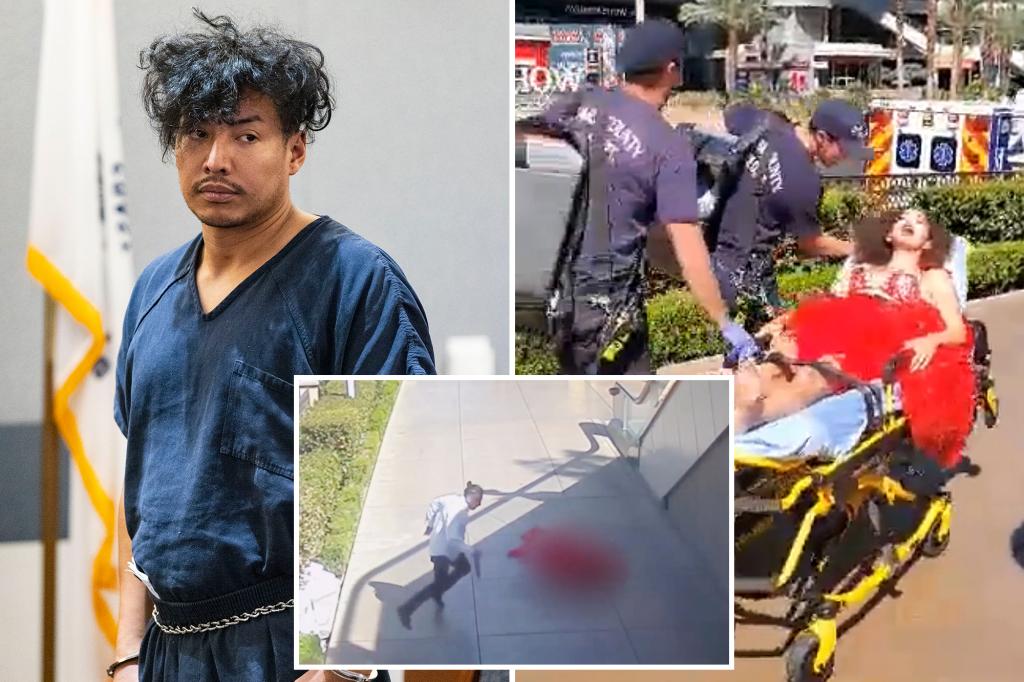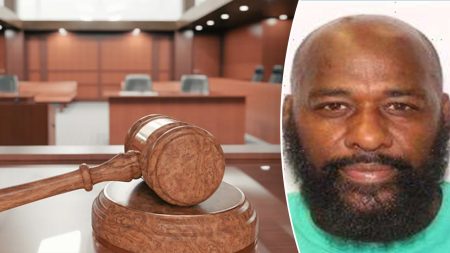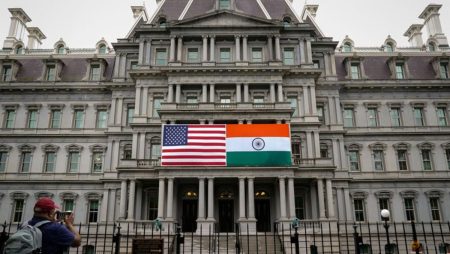The Las Vegas Strip, a vibrant hub of entertainment and tourism, became the scene of a horrific tragedy in October 2022 when Yoni Barrios, a 34-year-old Guatemalan national, embarked on a deadly stabbing spree. Barrios, who had illegally entered the United States, approached a group of showgirls outside the Wynn Las Vegas, claiming to be a chef and requesting a photograph. However, this seemingly innocuous interaction quickly devolved into violence. Believing he was being mocked for his attire, Barrios brandished a foot-long kitchen knife and attacked the women, fatally stabbing Maris Digiovanni in the heart. The brutal attack unfolded in front of horrified witnesses, including Digiovanni’s fellow showgirls, Anna Westby and Victoria Cayetano, both of whom also sustained injuries. Westby, who recounted the events in vivid detail, described Barrios presenting the knife as if “modeling it” moments before plunging it into Digiovanni’s chest.
The attack on the showgirls marked the beginning of Barrios’s rampage. Fleeing the scene, he continued down the Strip, indiscriminately targeting passersby. Among his victims was Brent Hallet, a 47-year-old Canadian tourist who had returned to Las Vegas with his wife to celebrate their 23rd wedding anniversary. Hallet was fatally stabbed in the back, his life tragically cut short during what should have been a joyous occasion. Barrios’s violent spree left a trail of devastation, with a total of two dead and six others wounded, each victim bearing the physical and emotional scars of the unprovoked assault. The rampage finally came to an end when police apprehended Barrios inside the Venetian Expo, a convention center across the street from the Wynn.
The aftermath of the attack saw Barrios face a multitude of charges, reflecting the gravity of his crimes. He was initially charged with two counts of murder and six counts of attempted murder. However, the legal proceedings took a complex turn when, in December 2022, a judge deemed Barrios unfit to stand trial and ordered him to a state mental hospital. This two-year period of evaluation and treatment aimed to restore Barrios to competency, ensuring his ability to understand the charges against him and participate in his own defense. This move underscored the importance of balancing legal accountability with considerations of mental health within the judicial system.
Following his two-year stay at the state hospital, Barrios was deemed competent to stand trial in December 2023, paving the way for the legal process to resume. A grand jury subsequently indicted him on 15 felony charges, significantly expanding the scope of the case against him. The charges now included one count of act of terrorism, reflecting the indiscriminate nature of the attack and the widespread fear it instilled within the community. The inclusion of this charge signaled the prosecution’s intent to portray Barrios’s actions not only as individual acts of violence but also as an attack on public safety and the very fabric of societal order.
The enhanced charges against Barrios, encompassing two counts of murder, six counts of attempted murder, and six counts of battery with a deadly weapon, in addition to the terrorism charge, paint a comprehensive picture of the devastation he wrought on that fateful day in October 2022. The inclusion of the terrorism charge is particularly noteworthy, as it elevates the case beyond individual acts of violence and frames it within a broader context of public safety and societal security. This legal strategy signifies a strong prosecutorial stance, potentially reflecting the severity of the crimes and the profound impact they had on the victims, their families, and the Las Vegas community as a whole.
Barrios’s arraignment continues, with the possibility of prosecutors seeking the death penalty if he is found guilty. This decision underscores the seriousness with which the state of Nevada views these crimes and reflects the potential for the most severe form of punishment under the law. As the legal proceedings unfold, the focus will remain on securing justice for the victims and their families, while also navigating the complexities of the defendant’s mental health history and the broader implications of the act of terrorism charge. The case serves as a stark reminder of the delicate balance between ensuring public safety, upholding the rule of law, and addressing the mental health challenges that can sometimes intersect with acts of violence.










